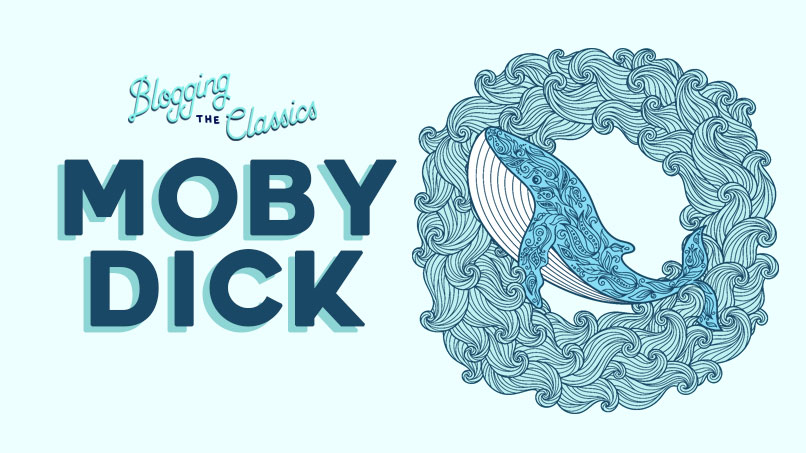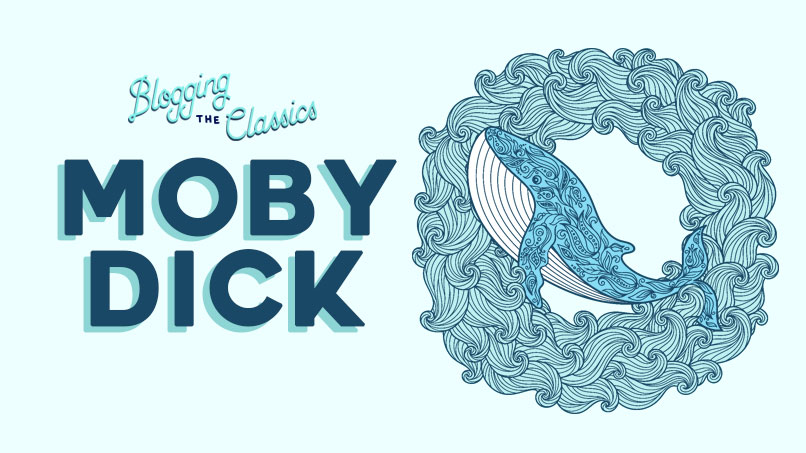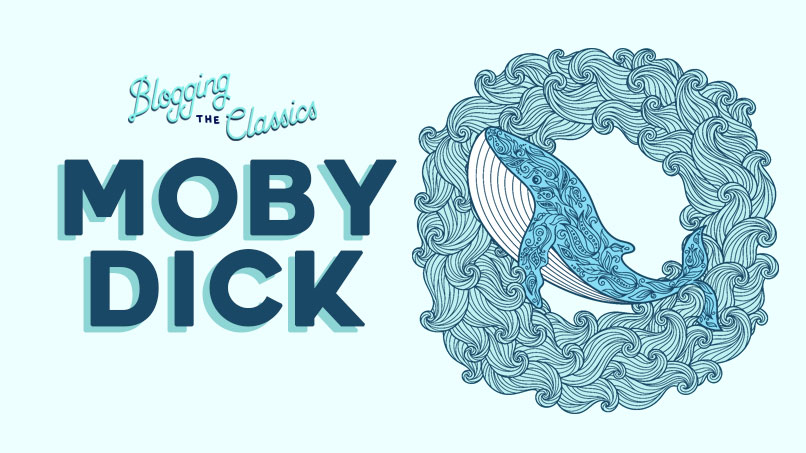Blogging Moby Dick, Part 1: Or, Moby Richard

Ahoy!
Let us be clear: unlike some of the books my illustrious colleagues have blogged you through, you will most likely never have to read Moby Dick in high school. The thing has 133 chapters, weighs as much as a child, and no teacher wants to be stuck on a whaling ship with you for the entire semester. So you don’t have to worry about memorizing any of this for the final.
No, there is only one compelling reason to read Moby Dick, and that is to be able to say that you have read Moby Dick, because it is the literary equivalent of competing in the Iditarod (cold and unnecessary, but impressive to announce at parties).
That is not to say that reading it does not have joy and value; there is wisdom and even humor hidden amongst the endless whaling anecdotes, and if nothing else, carrying around a copy will protect you from gunfire and will make any old men who see you reading it more kindly disposed to you.
With that said, let us now dive straight into the hungry mouth of what is often called The Greatest Novel In The English Language (or, as Goodreads puts it, 3.4 out of 5 stars).
PART ONE: ISHQUEG, A LOVE STORY
I think we can agree that “Call me Ishmael” is the greatest opening line of all time, suggesting as it does both a friendly confidence and a certain amount of mistrust in the narrator (he only wants us to “call” him Ishmael; he never says that is his name). But since this is Moby Dick we’re talking about, the book would never be so abrupt as to start without
- An etymology of terms
- A note lamenting or perhaps toasting the fate of sub-sub-librarians
- PAGES AND PAGES OF IRRELEVANT QUOTES ABOUT WHALES. JUST, IF YOU GOOGLE “WHALES” THESE ARE THE SEARCH RESULTS FROM PAGE 89.
- A frankly embarrassing dedication to Nathaniel Hawthorne, for whom Melville harbored an ardent crush.
And then we get going for real, as our narrator, “Ishmael,” decides to go to sea, for no other reason than that he is bored, really. I’m serious. Even knowing that he will by signing up for four years (which is a very long time when you think about life expectancies back then) trapped on board a boat with a bunch of hygenically-challenged strangers, is as likely to die as live, and can’t even expect to make any money at this enterprise, his basic attitude towards this voyage is:
Basically, Ishmael is the first millenial, in that he is image-obsessed, sexually fluid, and assumes a rich person’s attitude towards the world despite being very poor.
Upon arriving in New Bedford, Ishmael is forced to share a bed with Queequeg, a “savage” from a fictional (but vaguely Polynesian) island.
And this is as good a time as any to talk about Ishmael’s Feelings About Minorities:
-Racial Issues: On the surface, Ishmael seems to have a typical 19th century man’s feelings about different races: that they are all inferior to one (guess which one). He loves to commodify the beautiful bodies of Queequeg, Tashtego, and Daggoo (the harpooners), while assuring us that they were made to serve the ship’s officers. It’s enough (more than enough) to make modern readers very uncomfortable. However, there’s a legitimate case to be made that Melville had a somewhat more nuanced view of the issue than his narrator, especially when it comes to the character of Pip, whose fate we shall get to.
-Women’s Issues: There are virtually no women with speaking parts in this entire novel, which frankly comes as a relief, since I find it highly doubtful that Herman and I agree on the finer points of feminist theory. Frankly I think more male authors should stick to “if you can’t say something nice, don’t say anything at all.” It would certainly improve my opinion of Hemingway.
-LGBTQ issues: This brings us back to Queequeg, because let there be no doubt in the mind of the reader that Ish and ‘Queg are DEEP in Feelings for each other. Here’s a choice quote: “…when I first awoke…I could tell that Queequeg was hugging me.” Here is another one: “Thus, then, in our hearts’ honeymoon, lay I and Queequeg—a cozy, loving pair.”
Teen Wolf leaves more to the imagination.
So, thus coupled up, Queequeg and Ishmael resolve to seek employment on one of the whaling ships currently in port. They do so in spite of the GLARING FORESHADOWING following them everywhere they go, warning them against such a course of action.
Like, Ishmael goes to a church where the topic of the sermon is, “Whales: They Are The Instruments of God’s Wrath.”
Ishmael meets a man who claims to be a prophet named Elijah who tells him that signing up to this voyage will mean signing away his soul.
Ishmael eats a bowl of alphabet soup and the letters spell out “NOOOOOOOOOO.”:
But, as you have perhaps guessed, Ishmael ignores all these warnings and signs up both himself and Queequeg (love of his life) on the whaling ship Pequod, to be captained by an incredibly calm, professional, and sane man called Ahab.
And that is where we will resume next week.














